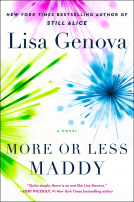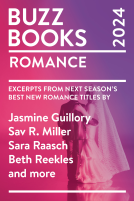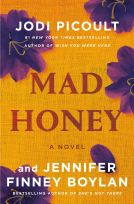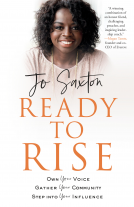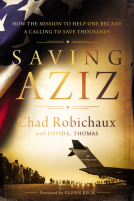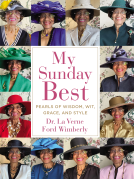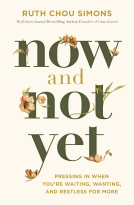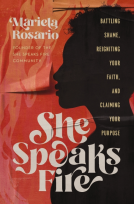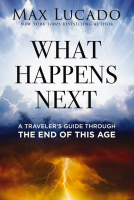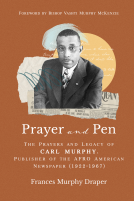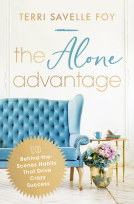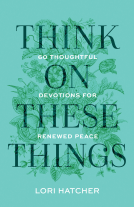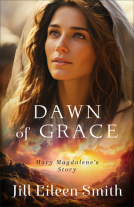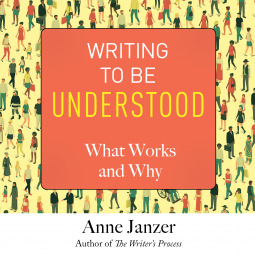
Writing to Be Understood
What Works and Why
by Anne Janzer
Narrated by Anne Janzer
This title was previously available on NetGalley and is now archived.
Send NetGalley books directly to your Kindle or Kindle app
1
To read on a Kindle or Kindle app, please add kindle@netgalley.com as an approved email address to receive files in your Amazon account. Click here for step-by-step instructions.
2
Also find your Kindle email address within your Amazon account, and enter it here.
Pub Date Aug 09 2019 | Archive Date Oct 08 2020
Cuesta Park Consulting | Independent Book Publishers Association (IBPA), Members' Audiobooks
Talking about this book? Use #WritingtoBeUnderstood #NetGalley. More hashtag tips!
Description
Are you interested in writing but not sure where to start? This “straightforward, practical guide” (Publishers Weekly) provides listeners with simple tips and tricks for effective nonfiction writing. Using science-based insight and advice from established writers, this informative listen will give you the tools and inspiration you need to reach an audience and make an impact!
A Note From the Publisher
Hardcover 9780999624814
Paperback 9780999624821
Ebook 9780999624838
Hardcover 9780999624814
Paperback 9780999624821
Ebook 9780999624838
Advance Praise
"In this straightforward, practical guide from Janzer (The Writer's Process), the 'why' of her subtitle provides her book's most intriguing aspect...[H]er belief that the world needs effective communicators of challenging and multifaceted topics provides this entry into a crowded genre with an unusually compelling reason for being."
- Publisher's Weekly
"The world needs more writers who can communicate effectively, clearly, and empathically about complex topics like science and medicine. Read this book and become one of those writers."
- Laura Lindenfeld, Ph.D., Director of the Alan Alda Center for Communicating Science at Stony Brook University
Available Editions
| EDITION | Audiobook, Unabridged |
| ISBN | 9780999624852 |
| PRICE | $11.20 (USD) |
| DURATION | 4 Hours, 42 Minutes |
Links
Featured Reviews
 Reviewer 562731
Reviewer 562731
Writing to Be Understood: What Works and Why by Anne Janzer is a great guide for those looking to strengthen their skills in nonfiction writing. Janzer does a great job of providing examples of how to engage the reader, with practical steps and advice. Whether you're writing academically or working on a blog or a book, this book will help you communicate more effectively through your writing and is definitely worth checking out.
I listened to the audiobook version narrated by Anne Janzer and thought she did a great job of relaying the information and making it engaging.
Many thanks to Cuesta Park Consulting and NetGalley for the ALC.
 Greg A, Reviewer
Greg A, Reviewer
This audiobook has full of useful and great ideas on how non-fiction writers can improve their communication with their readers. I am not planning of writing a non-fiction book for now but as a reader, I found great ways on how to look at the books I love reading.
I like that the author read this book since her ideas literally come out from her voice.
I would probably read the ebook version of this audiobook soon.
 Brigitte Y, Reviewer
Brigitte Y, Reviewer
As a writer and editor, I ended up devouring this book. In other words, I listened to it as soon as I received it and completed it within 24 hours. This book presents writing techniques, resources, and tools, and it treats writing as a science. Many people assume that writing boils down to picking up a pen or tapping their fingertips on the keyboard to produce few sentences and paragraphs that create content. However, they don't realize its effectiveness results from developing it as a skill, which means understanding writing rules and techniques.
I appreciate this book for its smart and fresh approach to the writing process. I have come across a few books about the writing process that are conversations about the author's writing habits with a few suggestions and nuggets of information about technique. In this book, the author gives away a writing technique right up front in the introduction. This action sets the direction as well as your expectations for the flow of information.
The author, Anne Janzer, begins the book by talking about, in my opinion, the most crucial aspect of writing: the audience. Time and time again, as a copy editor, I find that people write with no clue about the members of their audience. They often fill up their writing with jargon and acronyms. I love how the author reinforces the fact that simplicity can show the writer's knowledge, and when introducing a new or complex concept you need to provide an explanation.
In this book, the reader learns topics not often discussed in writing books, such as the importance of expressing empathy to understand the perspective of the audience and the foundations of moral feeling and thought.
Janzer not only conducted research but also studied nonfiction writing to discover how to weave specific writing methods throughout a story. I like that I can walk away with information that I can exercise and implement in my work today. I plan to listen to this book a few more times to reinforce the techniques and concepts so I can enhance my writing.
I would recommend this book to high school teachers and college educators who teach English and Journalism. Janzer's approach encouraged me to look up other books she's written and her author page. I would love to read more from this author and see how she addresses other writing topics, such as the editing process.
I truly enjoyed this book and think it's an excellent read for people attempting to improve their writing skills.
 Reviewer 579220
Reviewer 579220
I absolutely loved this book to the extent I actually bought the hard copy, as it wasn't one that worked well for me as an audio. There were too many things I wanted to refer back to.
This is basically the scientific approach to writing and to a certain extent reading, explaining using psychology and academic studies to explain how the brain reacts to certain types of writing, particular styles as well as idiomatic phrases.
This book would be an invaluable tool to any writer, especially those writing academic papers who want to explore less high brow audiences.
It is written in a down to earth manner with numerous references to other scholars' work and studies.
I wish I had read this book 10 years ago and saved myself a lot of hassle learning the process by trial and error.
Just as there is a science to baking, there is somewhat of a science to writing non-fiction, to communicating ideas. This can help people who want to be able to narrow down their communication or have trouble communicating. A fascinating read for people who write non-fiction, but truly others looking to be understood would benefit from this as well.
(Please note that I received a free advance from NetGalley without a review requirement, or any influence regarding review content should I choose to post a review. Apart from that I have no connection at all to either the author or the publisher of this book.)
Audiobook Review
As a freelance editor and writer of nonfiction myself, I'm always on the lookout for books that will help me with my writing or help me assist my clients with their writing. So when a book about writing shows up at one of my favorite book review sites, I snap it up. This one was actually an audiobook, read by the author. I've only just recently gotten into listening to audiobooks because one of my favorite book review sites just started offering them. I'm finding that I particularly like nonfiction books that are actually narrated by the author, as this one is. I have found that they are able to convey their love of their topic and their excitement for sharing it with you. And that was certainly true of the author/narrator of this book.
I am so glad I picked up this book. It will not only help my writing, but it will help me with my clients. I'll be able to give them much better direction—not that I was doing so poorly before as six of my authors have gotten number one bestsellers this year! The author has written nonfiction books herself, and she found herself asking certain questions about what makes a nonfiction book work—and what doesn't. She started doing research, re-reading and analyzing her favorite nonfiction books and reaching out to writers of nonfiction as well as other nonfiction readers, too, to ask their opinions. So while this book isn't scientifically researched, the author has put a fair amount of time into it. And it shows.
She broadly divides the book into three sections. The first section is all about the audience; I like that the author puts the emphasis on discussing the target audience first. So many people who start a nonfiction book—and I've seen this happen so many times—just think about getting their expertise out there without really thinking: what does the reader want to know, what do they already know, and why do they want to learn more? So, the very first section helps the would-be writer get into the reader's head and appreciate what they might want to know about this subject the author has knowledge about, a passion for, or expertise in..
The next section explores how to explain your subject well in ways that engage the reader, like telling stories, how to artfully incorporate data (if your subject lends to that), and other considerations. She doesn't go into chapter or blog post structure or analysis, which I would have liked to have seen because I’ve found that nonfiction writers or would-be authors struggle with that. But, of course, this book isn’t strictly about writing nonfiction books or blog posts; it’s more generally about nonfiction writing. She did discuss the balance needed between the different aspects of it, like stories, abstract sections, analogies, details, and data. I agree that balance is important.
The final section talks about how to make your writing less boring—and that is literally the title of the section, which I think is fun. In this section, she includes things like imagery, tone, humility, and humanity, finishing out the section with humor. I really like how she offers both what you should include in section two as well as ways to finesse it in section three. What I also liked, too, is that she openly admitted at the end of the book that she herself has learned much from writing this book by her deeper analysis of the books she likes as well as talking with other writers and readers about what works for them. How nice that she benefits from this book as well as we the reader do. I really like this book, and it certainly gives me more arrows in my quiver for myself as well as for my clients. In fact, the Kindle book is so reasonably priced that I think I will be folding it in with my nonfiction book mentoring/coaching price and have reading assignments for my authors as we work on developing their books. The book is that helpful. Highly recommended.
 Rod L, Media/Journalist
Rod L, Media/Journalist
Anne Janzer narrates her own book on fine-tuning a non-fiction writer’s skills.
The lessons given are just as valuable for fiction writers as many of the topics bridge both writing professions. Running at just over four and a half hours, this writing guide is an ideal resource that packs a lot of information into one short volume.
One of the most important conversations in this book is one that rarely seems to appear in similar tomes – that of writing about values-based topics and the need to not only know your audience, but their beliefs and opinions. In non-fiction writing, Janzer explains how facts and evidence won’t change an opinion, so the writer must rely on their choice of language and phrasing so as not to disenfranchise those people who may hold opposing views.
She goes on to discuss the need to alternate between theory and examples, exploring the idea of learning through analogies and stories.
Sensory hooks, tone, humour, repetition and style are all tools that Janzer discusses, along with the use of effective imagery in the prose.
The author practices what she preaches, making Writing to be Understood a primary example of the lessons learned. Listen once to learn, then again to notice those lessons in practice. Janzer’s guide to non-fiction writing is practical, sensible and enjoyable.
Anne Janzer offers a fantastic alternative to all of the 'How to Write a Thesis' and 'How to Write a Novel'-type texts I've read in the past. By primarily focusing her lens on the reader, Janzer advises on how to change your voice and style to communicate your message most appropriately and successfully. Great for copywriters and academics alike. I loved the formal frameworks applied throughout, which made the book feel a lot more theoretically grounded; there are, for example, chapters on 'Writing Advice from a Comedian' and 'Writing Advice from a Behavioural Expert'. A quick listen, but a great pep up for anyone experiencing writers' block or a lull in creativity.
Anne Janzer expertly dissects and deconstructs non-fiction writing in order to help other writers improve their work. She refers to a wealth of writing resources throughout. Plenty of food for thought and invaluable advice for writers of non-fiction to ensure that their work is accessible to the widest audience possible. The audiobook is brilliantly narrated by the author herself.
A great book advising writers on how to put their readers first and deliver readable, engaging, concise prose. Janzer’s conversational style and the layout of the chapters makes it accessible and easy to read. There is plenty to keep the novice writer on track and it’s a great resource to keep referring to in the future. Thanks to NetGalley for the review copy. Opinions are my own.
 Lesley D, Reviewer
Lesley D, Reviewer
There are many, many books about every aspect of writing and how to do it, but this book by Anne Janzer actually stands out. Her basic goal is to show that writers must understand who their audience is, and then (very specifically) write so that audience will be able to understand what the author is hoping to convey. One size does not fit all. She practices what she preaches and writes each chapter for authors of various genres and formats so THEY can understand how to succeed. Wonderful style, a book to be referred too often.
Readers who liked this book also liked:
Jodi Picoult; Jennifer Finney Boylan
General Fiction (Adult), Literary Fiction, Women's Fiction

